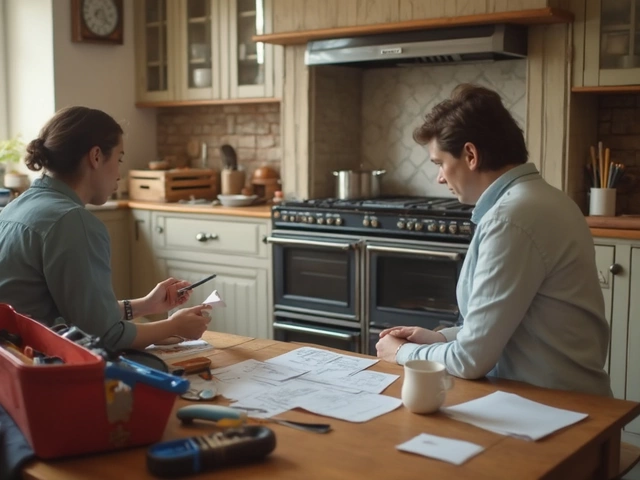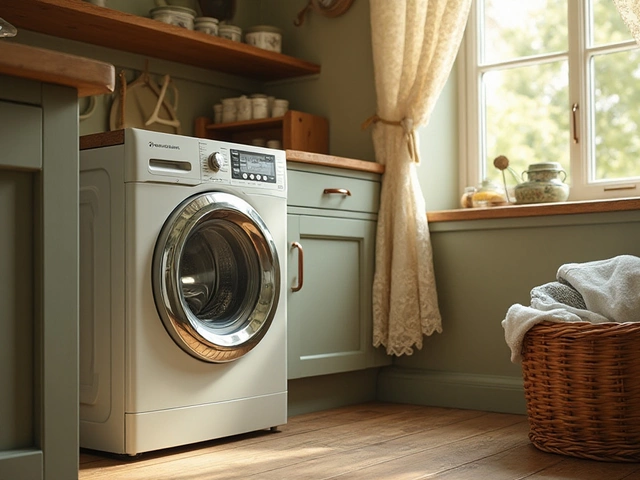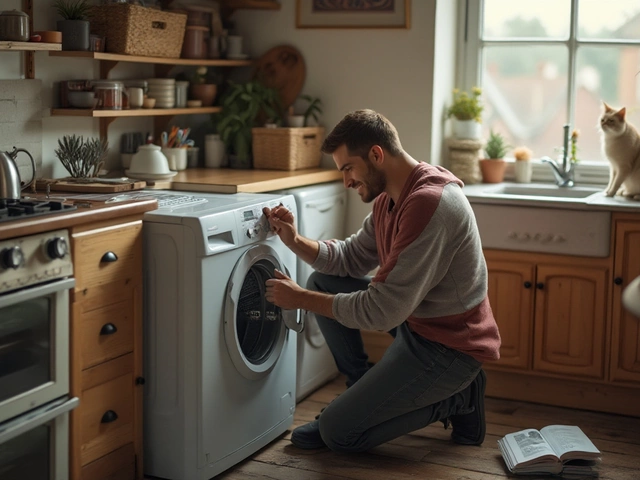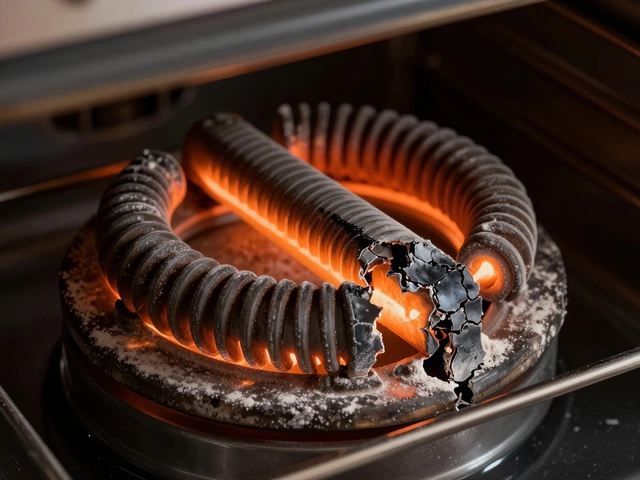If your home feels chilly or you hear odd noises from the boiler, something's probably wrong. Boilers are built to work hard, but they can develop issues just like any other appliance. Knowing the tell‑tale signs saves you time, money, and the hassle of a cold house.
First, look for a drop in water pressure. The gauge on the front should sit between 1 and 1.5 bar when the system is off. If it’s lower, you might see weak heating or no hot water at all.
Leaking water is another red flag. A puddle around the boiler, damp pipework, or moisture on the floor means a seal has failed or a pipe is cracked. Ignoring it can cause rust and expensive repairs.
Strange noises—gurgling, banging, or whistling—often point to air trapped in the radiators or a buildup of limescale inside the heat exchanger. These sounds aren’t just annoying; they reduce efficiency.
A boiler that won’t fire up or keeps shutting off may have a faulty ignition, a blocked condensate pipe, or a problematic thermostat. Modern units also display error codes; jot the code down and look it up in your manual.
Finally, an odd smell—like gas or burning dust—should never be ignored. If you smell gas, open windows, turn off the main supply, and call a Gas Safe engineer immediately.
Start by resetting the boiler. Most models have a reset button on the front panel; hold it for a few seconds and see if the system restarts. This can clear minor electronic glitches.
Check the pressure gauge and, if it’s low, top up the system using the filling loop. Usually you open both valves, let water run until the gauge reaches the right level, then close them. Be careful not to over‑fill.
Bleed any noisy radiators. Use a radiator key to turn the bleed valve until water starts to flow steady, then close it. This releases trapped air that can cause banging.
Inspect the condensate pipe for blockages, especially in winter. A frozen pipe will stop water from draining, leading to a shutdown. Thaw it gently with warm water if you see ice.
If you’ve tried these steps and the boiler still misbehaves, it’s time to call a qualified professional. Trying to fix gas components yourself is dangerous and could void warranties.
When you contact a repair service, have the boiler’s make, model, and any error code ready. This lets the technician diagnose the problem faster and bring the right parts.
Regular maintenance is the best defense against future faults. An annual service from a Gas Safe engineer checks the burner, heat exchanger, pressure valve, and safety controls. It also cleans out limescale that can cause overheating.
In short, keep an eye on pressure, leaks, noises, and error codes. Simple DIY checks can solve many minor issues, but never gamble with gas‑related problems. A well‑maintained boiler keeps your home warm, your bills low, and your peace of mind intact.

Frustrated by cold water instead of a hot shower? This guide breaks down the most common reasons your hot water is running cold, with simple fixes anyone can try at home.

Thinking about whether to repair an 8-year-old oven? This article digs into the real costs and benefits, from repair bills to how long ovens actually last. You'll get tips on diagnosing simple issues yourself, signs to look for before calling a pro, and how energy efficiency compares between old and new models. See how warranties, brand reputation, and parts availability impact the final call. Get advice that’s practical, straight-up, and doesn’t waste your time.

Choosing a reliable washing machine can be a daunting task given the numerous options available. This article provides insights into brands known for fewer repair issues and shares tips to maintain and extend the washer's lifespan. With technological advancements and design improvements, knowing how to select a durable washer can save time and money. Learn about the top performing washer brands based on recent studies and consumer reports. Also, discover interesting ways to keep your machine running smoothly.

Repairing a washing machine yourself can save time and money, and it's not as difficult as one might think. This article covers the basic steps for diagnosing common issues, tools required for repairs, and safety tips to consider. Whether it's a noisy drum or a leaking gasket, we guide you through essential troubleshooting techniques. Learn how to tackle minor fixes and decide when to seek professional help.

Learn how to tell if your oven element is blown by checking for visible damage, testing with a multimeter, and observing oven behavior. Most oven heating issues are simple fixes.

Learn how to spot a malfunctioning heat pump, recognize warning signs early, and troubleshoot issues to keep your home comfortable and energy bills in check.